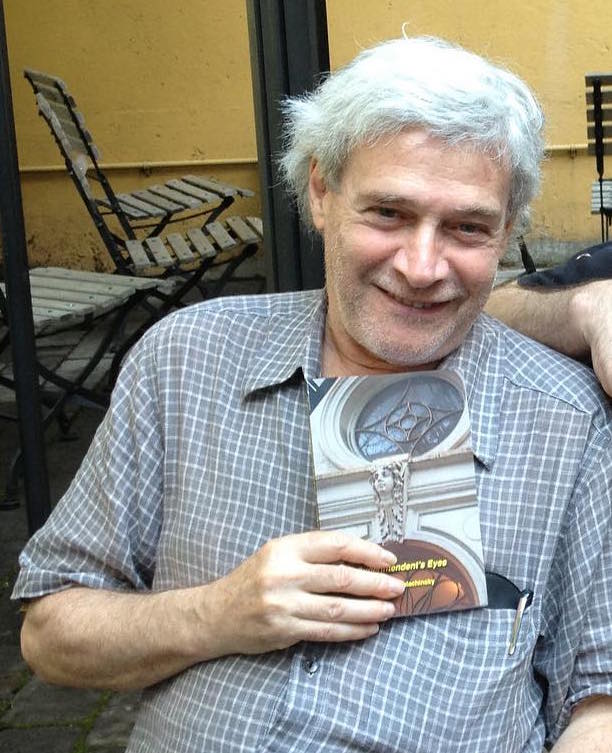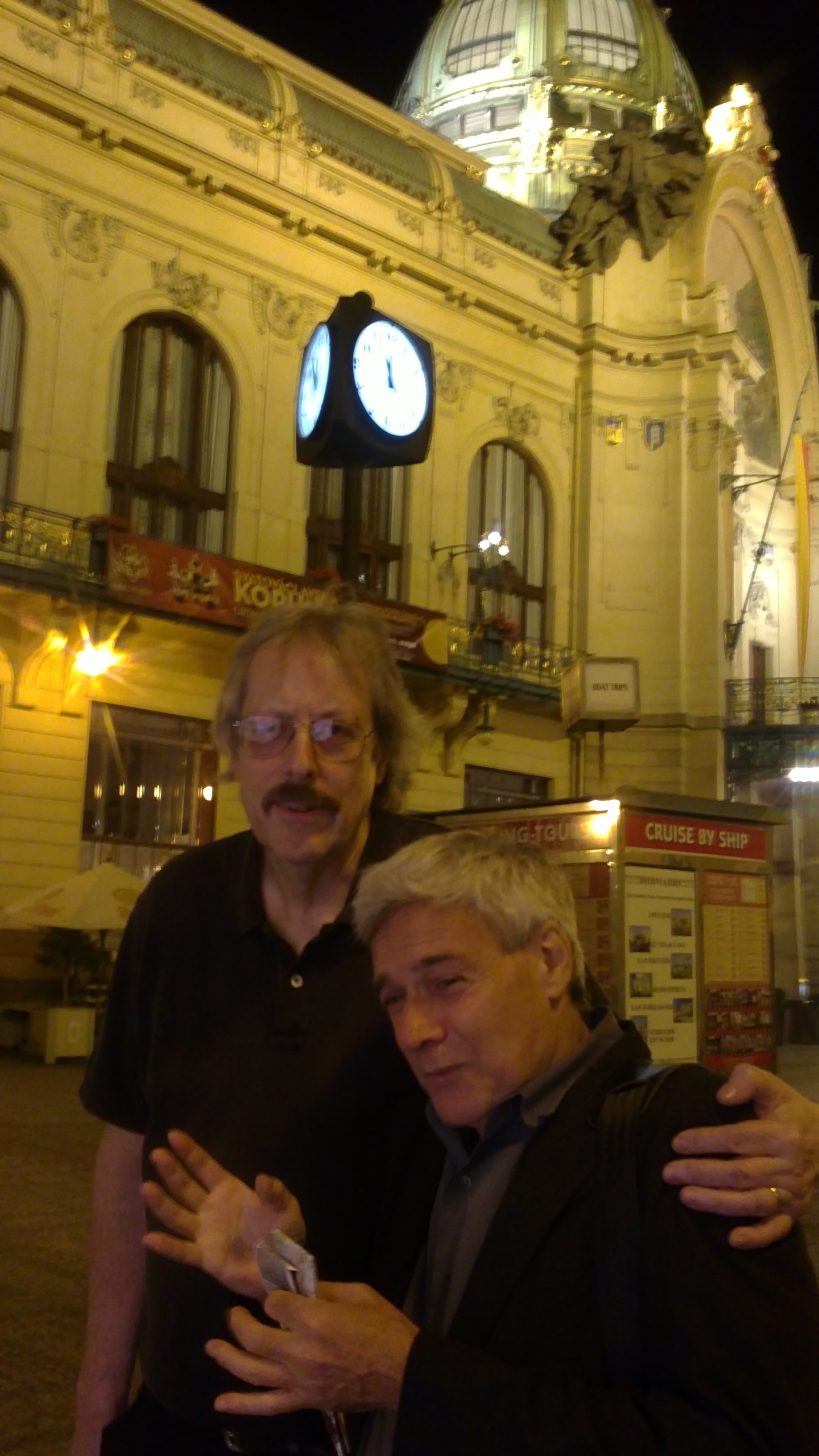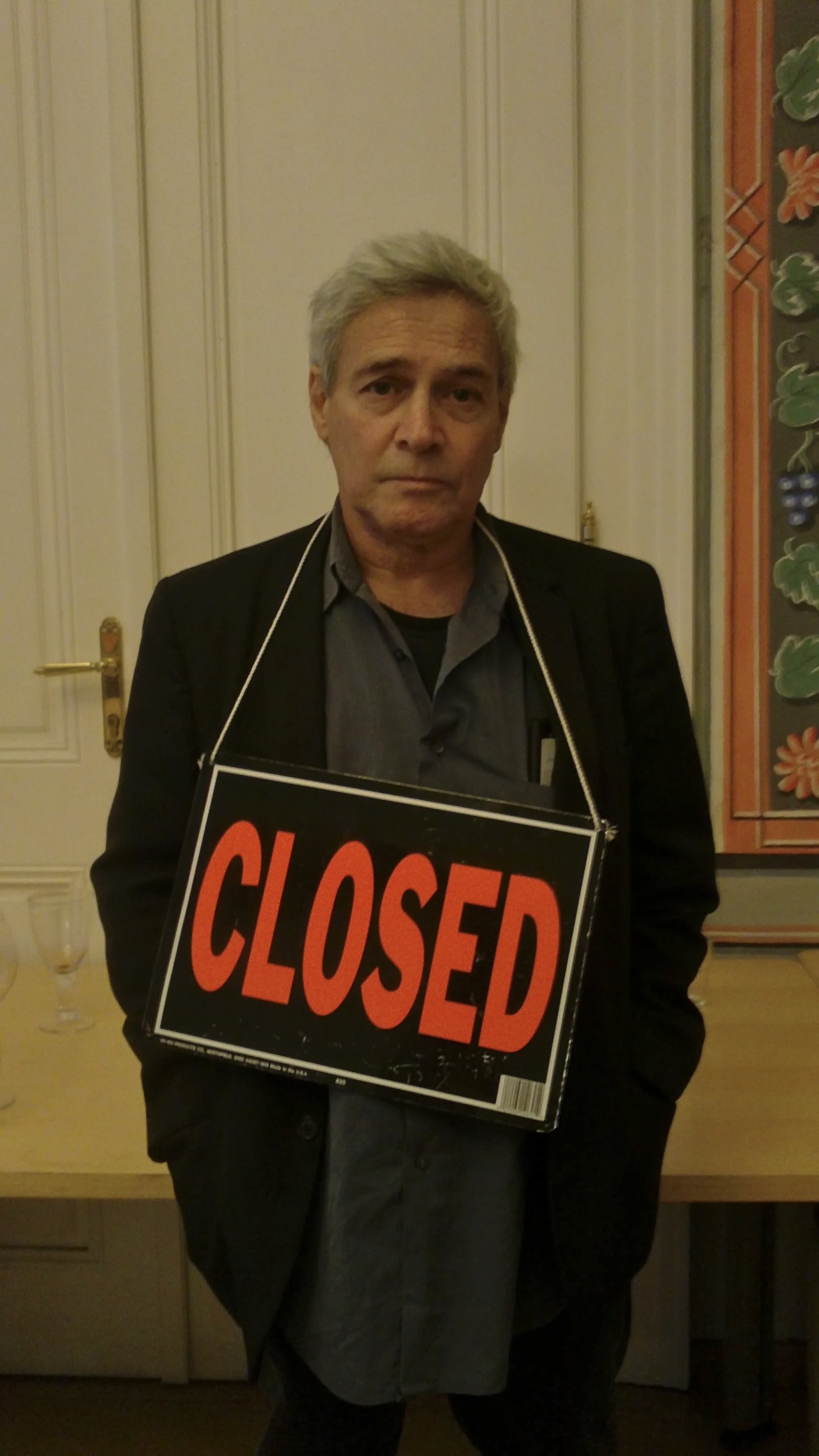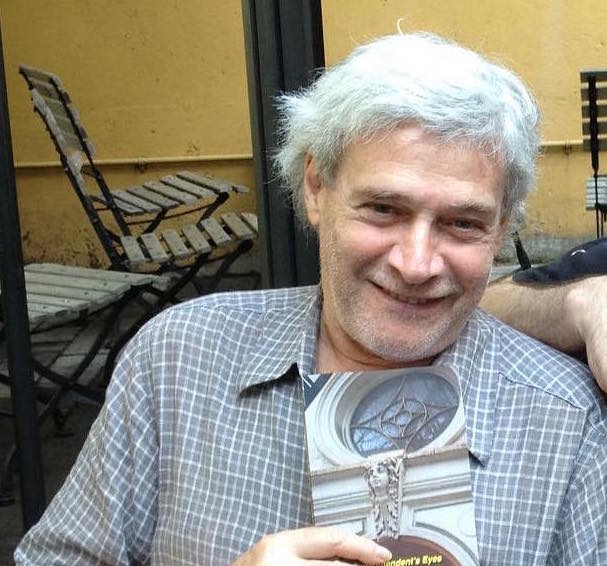
BY BONNY FINBERG |
“I have trouble recalling any significant, edifying or exhilarating free-jazz or total-improvisation concert I’ve attended at which Mr. Dalachinsky has not been in the audience, rough-edged, congenial and ready with an opinion.”
— Steve Smith, “What’s an Avant-Garde Evening Without a Poet and Plush Toys?” (The New York Times, Sept. 5, 2013)
Steve Dalachinsky was a consummate kvetcher, often unsure of how the world perceived him.
A self-proclaimed “gormand,” he inevitably coveted whatever was on your plate rather than what was on his own.
On a walk together in Paris, he was sure I got the better pick from a box of tossed records on the street, even though, knowing his proclivities, I let him go through it fully before picking through the remains. Ironically, he was beloved internationally, a recipient of awards and critical acclaim.
He was a generous friend and published writers he felt were underappreciated, through Sisyphus Press, lovingly handmade chapbooks produced with his wife, poet and painter Yuko Otomo. He embraced young, aspiring poets and musicians, perhaps finding a spark that reminded him of his early encounters with older musicians and poets.
At 15, walking past the Five Spot on St. Mark’s Place, sounds spilled onto the street. Underage, he snuck inside and saw Cecil Taylor playing the piano. This began a decades-long friendship.
“The music went right inside me,” he said, “and my addiction to free jazz began.”

Steve, who was 72, lived in Soho. He died early Monday morning, Sept. 15, from a stroke after reading his poetry with a jazz trumpeter in Long Island. He’d gone to a Sun Ra Arkestra concert with Yuko earlier in the day.
Still able to speak as he was wheeled into the emergency room, he joked, “Maybe I overdosed on Sun Ra.”
Yuko replied, smiling, “I told you so.”
A shared joke, followed by a little teasing, their last verbal exchange.
Aside from his wife of 40 years, he leaves behind his sister, Judy Orcinolo, and her son, Shaun.
Matt Shipp, longtime friend and collaborator, describes their relationship as a “perfect intersection,” sharing a love for the same musical and literary icons, describing their conversations “almost as natural as breathing.” Their conversations and Steve’s poems in response to Shipp’s playing were published in 2006 as “Logos And Language: A Post-Jazz Metaphorical Dialogue,” by Michel Dorbon under his Paris-based RogueArt.
Steve’s collection “The Final Nite & Other Poems: The Complete Notes From a Charles Gayle Notebook 1987-2006,” from Ugly Duckling Press (2006), won the PEN Oakland/Josephine Miles Literary Award.
He is also the recipient of the French Minister of Culture Award, as a Chevalier of the Ordre des Arts et des Lettres. Steve received an Acker Award, given in recognition of significant contribution and achievement in the Lower East Side arts community.

Steven Donald Dalachinsky was born in Brooklyn on Sept. 29, 1946, to Sylvia and Louis Dalachinsky, a house painter. As a young teen he was sent to a psychiatric hospital for behavior that would now be diagnosed as ADHD. There he met another patient, who, hearing Steve wrote poetry, gave him copies of Lawrence Ferlinghetti’s “Coney Island of the Mind” and Allen Ginsburg’s “Howl.” From this point his focus took a sharp turn and he devoured the Beats, absorbing a broad range of influences beyond.
In addition to his widely published poetry and critical writing on jazz, Dalachinsky was an accomplished collagist. His images reflect his love of surrealism, executed with seamless precision, textural complexity and absurdist humor.
As Dorbon said, “He was hungry for everything — food, life — food for sure, all that he catches, all that he grabbed, he wanted to restitute to others. He could read his work with any musician.”
Steve Dalachinsky took in everything and released a flood of consciousness forged into poetry in all he produced. His poetry, collages and chronicling of the music he so loved were poetic reflections of his wild and relentless imagination. How fitting that he ultimately died from an overflowing brain that couldn’t be contained. He left us all bereft, yet so full with everything he made. His hunger was insatiable, yet we are the beneficiaries of what that hunger left behind.
For a January 2016 feature profile of Steve Dalachinsky in The Villager, click here.
































